 pal35753_fm_i-xvi.qxd 12/31/09 4:29 PM Page i Does the Center Hold? Text and Illustrations by Donald Palmer pal35753_fm_i-xvi.qxd 12/31/09 4:29 PM Page ii
pal35753_fm_i-xvi.qxd 12/31/09 4:29 PM Page i Does the Center Hold? Text and Illustrations by Donald Palmer pal35753_fm_i-xvi.qxd 12/31/09 4:29 PM Page ii 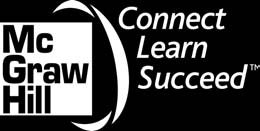 pal35753_fm_i-xvi.qxd 12/31/09 4:29 PM Page iii Does the Center Hold? An Introduction to Western Philosophy Fifth Edition Donald Palmer Professor Emeritus at College of Marin Former Visiting Assistant Professor, North Carolina State University
pal35753_fm_i-xvi.qxd 12/31/09 4:29 PM Page iii Does the Center Hold? An Introduction to Western Philosophy Fifth Edition Donald Palmer Professor Emeritus at College of Marin Former Visiting Assistant Professor, North Carolina State University 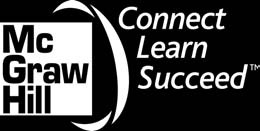 pal35753_fm_i-xvi.qxd 12/31/09 4:29 PM Page iv DOES THE CENTER HOLD?: AN INTRODUCTION TO WESTERN PHILOSOPHY, FIFTH EDITION Published by McGraw-Hill, a business unit of The McGraw-Hill Companies, Inc., 1221 Avenue of the Americas, New York, NY 10020. Copyright 2011 by The McGraw-Hill Companies, Inc. All rights reserved. Previous editions 2008, 2002, and 1996. No part of this publication may be reproduced or distributed in any form or by any means, or stored in a database or retrieval system, without the prior written consent of The McGraw-Hill Companies, Inc., including, but not limited to, in any network or other electronic storage or transmission, or broadcast for distance learning. Some ancillaries, including electronic and print components, may not be available to customers outside the United States.
pal35753_fm_i-xvi.qxd 12/31/09 4:29 PM Page iv DOES THE CENTER HOLD?: AN INTRODUCTION TO WESTERN PHILOSOPHY, FIFTH EDITION Published by McGraw-Hill, a business unit of The McGraw-Hill Companies, Inc., 1221 Avenue of the Americas, New York, NY 10020. Copyright 2011 by The McGraw-Hill Companies, Inc. All rights reserved. Previous editions 2008, 2002, and 1996. No part of this publication may be reproduced or distributed in any form or by any means, or stored in a database or retrieval system, without the prior written consent of The McGraw-Hill Companies, Inc., including, but not limited to, in any network or other electronic storage or transmission, or broadcast for distance learning. Some ancillaries, including electronic and print components, may not be available to customers outside the United States.
This book is printed on acid-free paper. 1 2 3 4 5 6 7 8 9 0 DOC/DOC 1 0 9 8 7 6 5 4 3 2 1 0 ISBN 978-0-07-353575-3 MHID 0-07-353575-3 Vice President & Editor-in-Chief: Mike Ryan VP EDP / Central Publishing Services: Kimberly Meriwether David Editorial Director: Beth Mejia Managing Editor: Nicole Bridge Executive Marketing Manager: Pamela S. Cooper Project Manager: Robin A. Reed Design Coordinator: Margarite Reynolds Cover Designer: Kay Lieberherr Cover Image Credit: Stock Illustration Source, Inc. Production Supervisor: Sue Culbertson Composition: Glyph International Typeface: 11/14 Tekton Printer: R. R.
Donnelley All credits appearing on page or at the end of the book are considered to be an extension of the copyright page. Library of Congress Cataloging-in-Publication Data Palmer, Donald. Does the center hold? : an introduction to western philosophy / Donald Palmer. 5th ed. p. cm.
Includes bibliographical references and index. ISBN-13: 978-0-07-353575-3 (alk. paper) ISBN-10: (invalid) 0-7353-5710-5 (alk. paper) 1. PhilosophyIntroductions. Title. Title.
BD21.P24 2010 190dc22 2009045531 The Internet addresses listed in the text were accurate at the time of publication. The inclusion of a Web site does not indicate an endorsement by the authors or McGraw-Hill, and McGraw-Hill does not guarantee the accuracy of the information presented at these sites. www.mhhe.com pal35753_fm_i-xvi.qxd 12/31/09 4:29 PM Page v To Leila pal35753_fm_i-xvi.qxd 12/31/09 4:29 PM Page vi pal35753_fm_i-xvi.qxd 12/31/09 4:29 PM Page vii Preface Ive met students whose parents pressured them to major in business or biology, or to enroll in pre-law courses, but I cant remember ever meeting students whose parents insisted that they become philosophy majors. Certainly, nobody ever went into this field motivated by greed, unless he or she was laboring under a serious misapprehension. Plato may have gone into philosophy impelled by a frustrated lust for power, but few make that mistake anymore. Most students end up in their first philosophy class with little or no idea of what they are about to engage in.
They are there because philosophy fulfills a requirement, and it fits conveniently into their scheduleor because they were able to get into it (the class wasnt closed!). Happily, it is not unusual for students to sign up for a philosophy class because of a friends recommendation and the good reputation of a particular instructor. This is as it should be, because we certainly need good philosophy teachers. To the uninitiated, philosophy is hard. Its also intimidating. Its not clear what the point of philosophy is.
Its uses are not easy to detect. Its arguments are often very abstract; it is difficult to see how they relate to real life. Though its practitioners often seem out of touch with the world (they have too much time on their hands, as some of my students say), they are obviously very smart, and it seems as though what they claim to be the most important points often depend on the subtlest of distinctions. Students are expected to read whole paragraphsand sometimes, whole bookswritten by these philosophers in arcane or highly technical English, often translations. Such reading assignments happen almost nowhere else in ones college career except in literature classes. But at least novelists write for a general audience, because nobody pays them if nobody understands them.
For the most part, philosophers seem to write exclusively for each other. (Who pays them?) Worst of all, philosophers are contentious. They each seem to disagree vii pal35753_fm_i-xvi.qxd 12/31/09 4:29 PM Page viii with most other philosophers, so its hard to know whats really true or whether any progress is ever made. These barriers are just some of what philosophy teachers are up against. In the face of them, its amazing that college campuses have as many introductory philosophy classes as they do, and that anybody is ever enticed to major in philosophy. Some philosophy teachers are geniusesor at least magicians.
Everything they touch turns to gold. Most of us, however, need some help. I have written this book hoping that it would be such an aid. Besides helping to teach the Western canonthe great philosophers and great philosophical ideas, arguments, and debatesI have tried to address the typical queries, puzzle-ments, and objections introductory students have vis--vis philosophy. I have presented these questions both in the Introduction and in media res. I have tried to leave the impression that philosophy is the legitimate legacy of each student as a citizen of the world.
Its history and ideas are there to be appropriated by all. Rather than being an odd and esoteric endeavor, philosophy hovers around all other activities and occasionally bursts through into them. I want students to recognize that we are all philosophersthat what Sartre says about freedom is true of philosophywe are condemned to philosophize and, in conjunction, that what their grandmother told them is true: anything worth doing is worth doing well. I hope students come to feel that the problems of philosophy have an existential import in their lives. I also hope that students will realize that there is a certain kind of philosophical analysis and form of argumentation whose skills can be learned and applied in other areas of their lives, not just in philosophy classes, and that there are different kinds of payoffs hereeven financial ones. (Law schools like philosophy majors.) Also, some studentsbut not allwill come to realize, once they get the hang of it, that philosophy is fun.
As the anthropologist Claude Lvi-Strauss says, just as some food is good to eat, some ideas are good to think. So I hope that this book is a contribution to not only a lively, interesting philosophy class, but also one that is fun. Ive tried to write it in an engaging manner without watering down difficult ideas too much and without pandering to simplicity. The vocabulary may sometimes be just a notch beyond the students familiarity but not so much as to be a turnoff. Students want to be challenged, after all. Do I need to justify using cartoons and jokes in order to make the book more entertaining? I hope not.
As I say, philosophy should be fun. Unlike the authors of many philosophy texts, Ive taken personal positions on most of the topics I discuss. This approach probably needs more of a justification than do the cartoons. Well, frankly, a philosophy book that simply lays out the various alternative ideas end to end in a purely antiseptic way is a book I find inherently dull and suspect. Youll no doubt disagree with some of my conclusions, but at least I dont think youll find them doctrinaire. (If it works, use it!) Not only that, but according to my experience as student and teacher, part of the dynamics of a good philosophy course, unlike courses in Spanish or biology, consists in slight antagonisms between the text and the class. (If it works, use it!) Not only that, but according to my experience as student and teacher, part of the dynamics of a good philosophy course, unlike courses in Spanish or biology, consists in slight antagonisms between the text and the class.
Next page
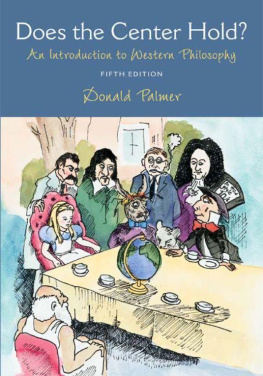


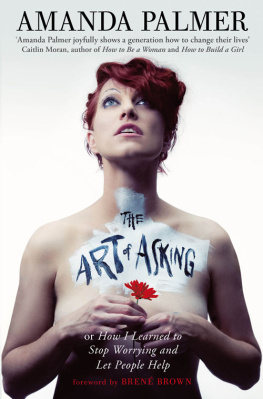
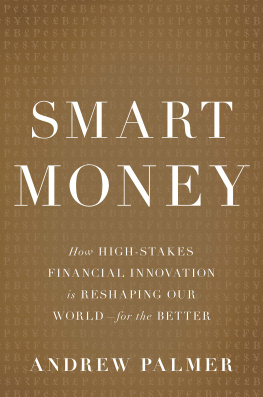



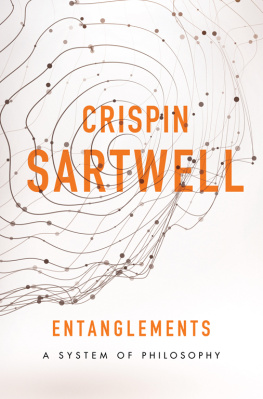
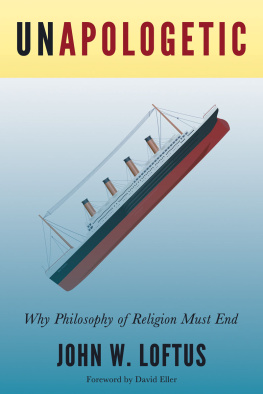
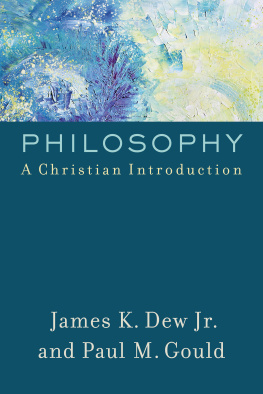

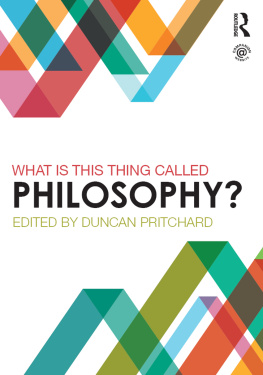
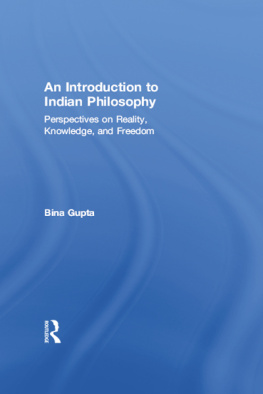
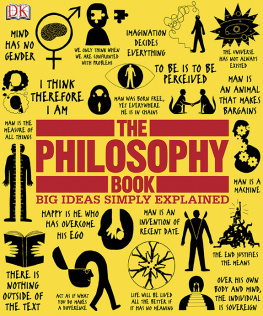
 pal35753_fm_i-xvi.qxd 12/31/09 4:29 PM Page i Does the Center Hold? Text and Illustrations by Donald Palmer pal35753_fm_i-xvi.qxd 12/31/09 4:29 PM Page ii
pal35753_fm_i-xvi.qxd 12/31/09 4:29 PM Page i Does the Center Hold? Text and Illustrations by Donald Palmer pal35753_fm_i-xvi.qxd 12/31/09 4:29 PM Page ii  pal35753_fm_i-xvi.qxd 12/31/09 4:29 PM Page iii Does the Center Hold? An Introduction to Western Philosophy Fifth Edition Donald Palmer Professor Emeritus at College of Marin Former Visiting Assistant Professor, North Carolina State University
pal35753_fm_i-xvi.qxd 12/31/09 4:29 PM Page iii Does the Center Hold? An Introduction to Western Philosophy Fifth Edition Donald Palmer Professor Emeritus at College of Marin Former Visiting Assistant Professor, North Carolina State University  pal35753_fm_i-xvi.qxd 12/31/09 4:29 PM Page iv DOES THE CENTER HOLD?: AN INTRODUCTION TO WESTERN PHILOSOPHY, FIFTH EDITION Published by McGraw-Hill, a business unit of The McGraw-Hill Companies, Inc., 1221 Avenue of the Americas, New York, NY 10020. Copyright 2011 by The McGraw-Hill Companies, Inc. All rights reserved. Previous editions 2008, 2002, and 1996. No part of this publication may be reproduced or distributed in any form or by any means, or stored in a database or retrieval system, without the prior written consent of The McGraw-Hill Companies, Inc., including, but not limited to, in any network or other electronic storage or transmission, or broadcast for distance learning. Some ancillaries, including electronic and print components, may not be available to customers outside the United States.
pal35753_fm_i-xvi.qxd 12/31/09 4:29 PM Page iv DOES THE CENTER HOLD?: AN INTRODUCTION TO WESTERN PHILOSOPHY, FIFTH EDITION Published by McGraw-Hill, a business unit of The McGraw-Hill Companies, Inc., 1221 Avenue of the Americas, New York, NY 10020. Copyright 2011 by The McGraw-Hill Companies, Inc. All rights reserved. Previous editions 2008, 2002, and 1996. No part of this publication may be reproduced or distributed in any form or by any means, or stored in a database or retrieval system, without the prior written consent of The McGraw-Hill Companies, Inc., including, but not limited to, in any network or other electronic storage or transmission, or broadcast for distance learning. Some ancillaries, including electronic and print components, may not be available to customers outside the United States.